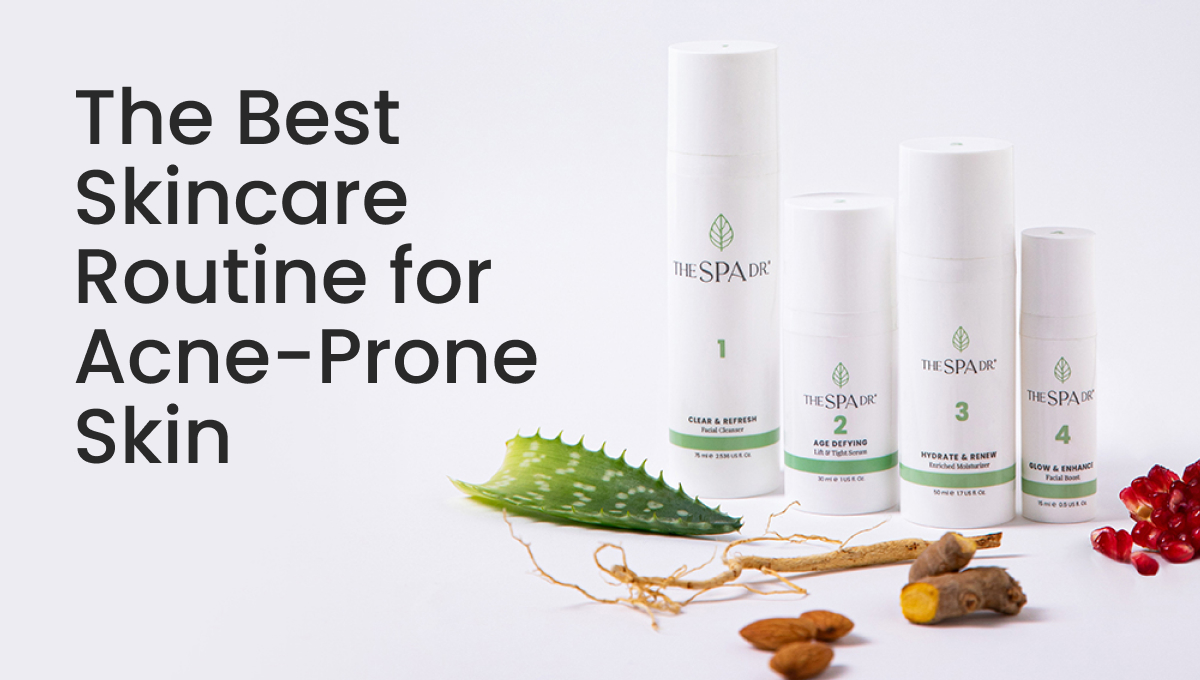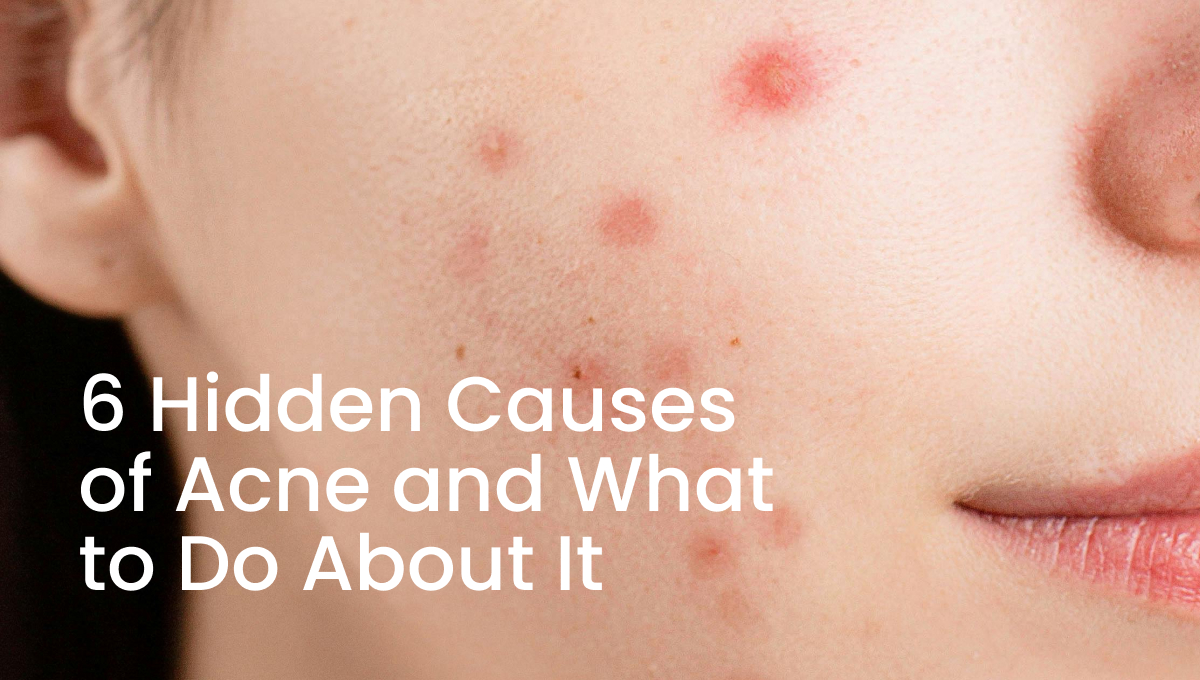The surface of your skin often reveals what is happening inside the body – and one of the most common root causes of skin issues is nutritional deficiencies. When it comes to your skin, specific nutrients are essential to enhance skin quality to promote a healthy glow and graceful aging. Here are seven top nutrients for skin health – and they’re ones that I most commonly see as deficiencies when it comes to skin problems and specific skin issues.
1. Zinc
Zinc has been used in skin therapy for centuries. It’s known for its wound healing and anti-inflammatory properties. In the skin, zinc is prevalent in the epidermis. You also need zinc to support your immune health and it is needed for the production of thyroid hormones, including T3, T4, and thyroid stimulating hormone.
Unfortunately, zinc deficiency is common and can impact your immune response and your skin. Deficiency can present itself on the surface of your body, such as through dermatitis and leg ulcers. Today, these types of skin issues are occurring more often because more people are stressed. If this occurs, your skin might be giving you a sign that something is out of balance within the body.
Another reason zinc deficiency occurs is because of the lack of nutrients in food and problems with absorption and digestion. Zinc is prevalent in foods such as oysters, beef, chicken, and lentils. You can also receive zinc by taking supplements.
If you’re taking zinc as a supplement, it’s helpful to take it as part of a multivitamin and mineral supplement, because it works in combination with other nutrients. Isolating nutrients and taking them for a short period of time can be helpful; however, when you’re taking an individual nutrient for the long term, it’s important to be mindful of the fact that they can also complement other nutrients.
2. Essential Fatty Acids (EFAs)
Essential fatty acids (EFAs) cannot be made by the body and must be obtained through the diet. Unfortunately, many people do not get enough essential fatty acids through the standard American diet. The two main types of essential fatty acids are omega-3s and omega-6s, which are unsaturated fats found in plants and fatty fish.
We need EFAs to curb inflammation, reduce dry skin, and keep skin hydrated, but it is important to consume the right ratios. Many people make the mistake of consuming too many omega-6-rich foods and not enough omega-3-rich foods. Omega-3 fatty acids are especially important for skin health to reduce inflammation, and they also support heart health.
The best source of omega-3 fatty acids is fish, such as Alaskan salmon. Other sources include flaxseed, walnuts, eggs from free-range hens, grass-fed beef, and free-range chickens. It’s important to get EFAs through these nutritionally dense sources. If you don’t eat enough of these foods, you can receive EFAs through high-quality supplements. This is especially important if you are a vegan or vegetarian.
3. Vitamin A
The third top nutrient for your skin is vitamin A, a very potent antioxidant that is crucial for aging skin. It is a fat-soluble vitamin that assists with skin healing, protects against oxidative damage, and improves texture in addition to promoting healthy aging. When we don’t get enough vitamin A in our diets, it can show up as premature aging, bumpy skin, and some other skin issues such as dry and scaly skin. Vitamin A also supports thyroid function, as it activates thyroid hormone receptors.
Furthermore, carotenoids – the dark pigments that are processed as a form of vitamin A in the body – act as antioxidants. This includes beta carotene, which is found in brightly colored orange and yellow fruits and vegetables such as carrots, sweet potatoes, and apricots. Leafy greens are also sources of carotenoids. By eating a diet rich in these foods, you can receive the vitamin A that your body and your skin need. Vitamin A is also a nutrient available in multivitamin and mineral supplements.
You can take vitamin A as a supplement; however, it’s important to not take more than 10,000IU per day unless directed by your doctor. For a more personalized approach, talk to your naturopathic or functional medicine doctor about incorporating supplements such as this into your routine.
4. Vitamin C
Vitamin C is a vital antioxidant that’s important for your skin because it plays a role in wound repair and collagen production. Collagen is what gives our skin that nice texture and firmness and keeps our skin looking youthful. Unfortunately, collagen starts to break down as we age, which leads to wrinkles and sagging skin.
And here’s something interesting about vitamin C that you may not know. It actually is naturally occurring in the skin, and it has a protective quality to it because of its antioxidant effects. However, like many other nutrients, vitamin C starts to decline in our skin with age. That means we need more and more of it as we get older. And because it’s a water-soluble vitamin (unlike vitamin A, which is a fat-soluble vitamin), we need more vitamin C on a regular basis.
Fortunately, vitamin C deficiency is rare today because we have access to so many fresh foods and citrus fruits. Before vitamin C was discovered, scurvy was a common disease because it was uncommon to have foods containing vitamin C on ships (like fresh produce). To figure out why so many sailors were ill, surgeon James Lind gave them lemon juice to see if it improved their conditions. As a result, he practically eliminated scurvy in his fleet. This is because scurvy is caused by vitamin C deficiency. Scurvy is rare today; however, people can still get it. If you bruise easily or your skin isn’t repairing properly, it could be a sign of vitamin C deficiency.
5. Vitamin D
Another one of the top nutrients for skin is vitamin D, which is also known as “the sunshine vitamin.” In addition to being a vitamin, vitamin D is also a prohormone. It acts like a hormone in the body because of the way it’s made and the way it interacts in the body. Like zinc, vitamin D is also important for both your immune system and your skin. What’s interesting about vitamin D is that humans get it from the sunlight. When the sun touches your skin, that’s when your body makes vitamin D. This process helps support your vitamin D levels.
There are some foods that contain vitamin D. However, the best way to get it is from the sun, which is why I recommend getting a simple blood test (25 OH- Vitamin D) to learn where your levels are and determine if you need to take a vitamin D supplement. Chronic skin conditions like atopic dermatitis, psoriasis, vitiligo, and acne may occur if your vitamin D levels are low. When I look at lab results, I look for optimal levels – and when it comes to this vitamin, you want to see it on the upper end of the normal range. Sometimes I’ll see even people slightly above that, and that’s not a bad thing for vitamin D.
What you don’t want is to see your vitamin D levels on the low end of the normal range or below normal. In those cases, you want to supplement with vitamin D3. Restoring your levels may take a few months, especially if you’re in the winter months when you have less sun exposure. Other factors that impact vitamin D levels include your skin tone, how much pigmentation you have in your skin, your genetic susceptibilities, where your genetics come from, where you live, and how high up you are above sea level.
If you want to take vitamin D for your skin and your immune system, it is best to work with a functional medicine doctor or naturopathic physician to find out what your supplementation needs are. Because vitamin D gets stored in the body, you may need to have your blood levels tested again to make sure they have increased or are within a normal range – then you can work with your doctor to adjust your supplement intake.
6. B-complex vitamins
The B-complex group contains essential water-soluble vitamins. Most people think of biotin when they think of B vitamins. Biotin is really important for your health and helps repair skin. That’s why you’ll find so many skin support supplements or multivitamins for hair, skin, and nails that contain biotin – including The Spa Dr. Daily Nutrients Packets. Plus, you’ll receive your daily essential nutrients without the need to count, sort, or measure.
The first signs of biotin deficiency often present themselves on the skin as a red and scaly rash around the eyes, nose, and mouth. And because it’s water-soluble, it doesn’t build up in your system but needs to be replenished frequently. Avocados, egg yolks, sunflower seeds, and sweet potatoes are all food sources of biotin.
Vitamin B5
Another B vitamin that supports skin health is B5 or pantothenic acid, which I talk about in my book, Clean Skin From Within. Vitamin B5 can help enhance the repair of the skin barrier and reduce inflammation. Food sources of vitamin B5 include fish, chicken, eggs, and lentils.
Vitamin B3
Niacin – or vitamin B3 – is converted into niacinamide by the body. You may have noticed niacinamide featured as a key ingredient in today’s popular skin care solutions. This is because it supports skin issues both topically and internally, such as reduced pigmentation, wrinkles, and acne.
Vitamin B-12
Another B vitamin that greatly helps with skin health is B-12. Vitamin B12 is a common deficiency in a condition called keratosis pilaris. Keratosis pilaris causes little bumps that appear on the backs of your arms. Sometimes people get them on their cheeks and other places.
When I was experiencing my own B vitamins deficiency while I was in medical school and saw for myself how this can impact skin health. I suffered from painful cracks around the sides of my mouth (called angular cheilitis) – it was even so painful that I had trouble smiling. What I found was that after restoring my vitamin B levels, these cracks cleared up.
If you’re having skin issues or any other health issues, it’s essential to touch base with your doctor about what to look for.
7. Adaptogenic Herbs
Adaptogens are herbs that are known to have a balancing effect on the stress response. Adaptogens must meet three specific criteria:
- They must be nontoxic in normal doses
- They must support the body’s ability to adapt to stress
- They positively impact the body
Ashwagandha, rhodiola, holy basil, and schisandra are common adaptogenic herbs.
Ashwagandha is one of the most prized adaptogens available today and is the key nutrient in The Spa Dr.® Stress Adapt. This comprehensive blend contains three unique and well-researched forms of ashwagandha extracts that help support a healthy mood and normal response to perceived stress.* Stress Adapt is carefully formulated with industry-leading ashwagandha sources and a high-quality standardized extract that are derived from whole-plant extracts (root and leaf) to provide optimal efficacy.*
Increasing Your Intake
The best way to start receiving the top nutrients for skin health and overall health is through your diet, so I encourage you to evaluate what you’re eating. Are you eating whole foods? Getting the right balance of nutrients? Getting these nutrients in your food and your daily routine? If not, you may want to start taking a multivitamin/mineral supplement. These won’t contain essential fatty acids, but you can also find those in supplement form, such as in Astaxanthin + Omega Krill, which contains omega-3 fatty acids EPA (eicosapentaenoic acid) and DHA (docosahexaenoic acid). Or get your daily nutrients in our convenient supplement packets.
Watch Your Digestion
A key component to receiving these nutrients efficiently is your gut health. If your gut health is not where it needs to be, you’re not going to digest your food, and you’re not going to absorb the nutrients, whether it’s from food or from a supplement.
If you’re having any skin issues, evaluate the state of your digestive health. Then do things to support digestion, like taking time to chew your food thoroughly. Preparing your food in a different way also helps. Chop it up, steam it, and eat more raw foods. You can also stimulate your digestion. Add apple cider vinegar or lemon juice to your water and drink that before eating a meal. Increasing your fiber intake will also help.
Taking a digestive supplement is another way you can support gut health. We created The Spa Dr.® Skin & Gut Restore to promote optimal gastrointestinal function.* Skin & Gut Restore contains soothing herbs, amino acids, and other compounds to support optimal gut health, including quercetin, cat’s claw, MSM, l-glutamine, and more.
If you suspect you have digestive problems, speak with your doctor to see where you can improve.
The Spa Dr.® Approach
At The Spa Dr.®, our approach is to help shine the light on the skin and health care information and offer our guidance to support you on your journey.
We’re offering a free 9-part documentary series – Hormones, Health & Harmony to help you balance your hormones and restore radiance. Register HERE.
My new book, Natural Beauty Reset, provides an in-depth look at how you can nourish your body and support your health and hormones through the seasons.
The Spa Dr.® offers natural skin care products that are safe and free from chemicals and toxins that can harm your skin and health. Our products are formulated to contain key nutrients in their pure and active form to provide optimal results. In addition, our products are pH balanced towards mild acidity to promote and protect a healthy skin microbiome.
If you are not already part of The Spa Dr.® community, please join us on social media.
Share this article with your friends and spread the word to promote harmonized hormones and natural beauty!
*These statements have not been evaluated by the Food and Drug Administration. This product is not intended to diagnose, treat, cure or prevent any disease.








Reader Interactions